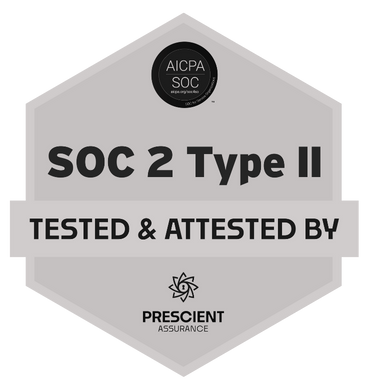When it comes to estate planning, people have plenty of strategies to secure their assets, distribute them efficiently, and provide for their loved ones. A good option is to use A/B trusts, also called 'marital' and 'bypass' trusts. In this blog, we'll break down everything you should know about A/B trusts and why they're key in estate planning.
An A Trust, also known as the 'marital trust,' lets the surviving spouse benefit from the deceased's assets by providing income from the trust's assets. On the flip side, a B Trust, referred to as the 'bypass,' or 'family trust,' is set aside for beneficiaries like children, with limited access for the surviving spouse.
While A trust assets may face estate tax when the second spouse passes, B trust assets can bypass the surviving spouse's estate, avoiding estate taxes and potentially passing on more assets to heirs.
A/B trusts aren't just legal entities for handling personal assets; they're a smart strategy for cutting estate taxes and safeguarding your assets. By splitting assets between these two trusts, you can double up on tax exemptions—one for each spouse.
Apart from taxes, A/B trusts are key for managing assets. They make sure your surviving spouse has what they need while keeping the inheritance safe for your kids or other beneficiaries. These organized distributions are crucial, especially if things like remarriage or creditors come into play.
Although A/B trusts offer significant benefits, they're not a one-size-fits-all solution. They work best for married couples with estates surpassing the federal estate tax exemption. If your estate won't face estate taxes, an A/B trust might not be the best option for you.
It's important to know that A/B trusts aren't a one-and-done fix. With changes in tax laws and personal situations, trusts need occasional check-ins and possible tweaks. Keeping an eye on legal updates and shifts in your estate value helps ensure your A/B trust matches your current wishes and the tax situation.
A/B trusts can play a big role in smart estate planning, especially for cutting down taxes and securing assets. Getting professional advice is key. If you're thinking about setting up an A/B trust for your estate plans, chat with your advisor about Estate Guru.
When it comes to estate planning, people have plenty of strategies to secure their assets, distribute them efficiently, and provide for their loved ones. A good option is to use A/B trusts, also called 'marital' and 'bypass' trusts. In this blog, we'll break down everything you should know about A/B trusts and why they're key in estate planning.
An A Trust, also known as the 'marital trust,' lets the surviving spouse benefit from the deceased's assets by providing income from the trust's assets. On the flip side, a B Trust, referred to as the 'bypass,' or 'family trust,' is set aside for beneficiaries like children, with limited access for the surviving spouse.
While A trust assets may face estate tax when the second spouse passes, B trust assets can bypass the surviving spouse's estate, avoiding estate taxes and potentially passing on more assets to heirs.
A/B trusts aren't just legal entities for handling personal assets; they're a smart strategy for cutting estate taxes and safeguarding your assets. By splitting assets between these two trusts, you can double up on tax exemptions—one for each spouse.
Apart from taxes, A/B trusts are key for managing assets. They make sure your surviving spouse has what they need while keeping the inheritance safe for your kids or other beneficiaries. These organized distributions are crucial, especially if things like remarriage or creditors come into play.
Although A/B trusts offer significant benefits, they're not a one-size-fits-all solution. They work best for married couples with estates surpassing the federal estate tax exemption. If your estate won't face estate taxes, an A/B trust might not be the best option for you.
It's important to know that A/B trusts aren't a one-and-done fix. With changes in tax laws and personal situations, trusts need occasional check-ins and possible tweaks. Keeping an eye on legal updates and shifts in your estate value helps ensure your A/B trust matches your current wishes and the tax situation.
A/B trusts can play a big role in smart estate planning, especially for cutting down taxes and securing assets. Getting professional advice is key. If you're thinking about setting up an A/B trust for your estate plans, chat with your advisor about Estate Guru.

